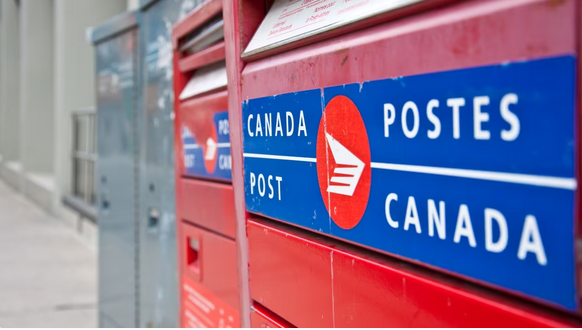Online bank Koho Financial raises $190-million in debt and equity to boost its loan book
Online bank challenger Koho Financial Inc. is bolstering its case to become a Schedule 1 Canadian bank by raising $190-million in equity and debt to help boost its loan book.
The new financing package, which was set to be announced Wednesday and includes a $40-million equity raise and $150-million in debt, will help Koho continue to expand the amount it lends to consumers for buy-now-pay-later financing at e-commerce checkouts and to offer lines of credit up to $15,000, travel insurance products and a rent reporting tool to help clients build their credit histories.
Koho chief executive Daniel Eberhard said in an interview that his company had the choice to become profitable with its existing capital, “but this injection allows us to grow faster and expand our lending business, both of which supports our bank licence application.”
Koho applied for a bank licence in 2022, and must pass through a three-phase process under Canada’s Bank Act to obtain approval. As part of the regulatory process, the Office of the Superintendent of Financial Institutions assesses applications and makes recommendations to the minister of finance, who has the ultimate responsibility for approving the incorporation of a federally regulated financial institution. The company had moved into the second phase of the process earlier this year to become a Schedule 1 bank, which is a wholly domestic institution in Canada that is required to take customer deposits.
The $150-million debt portion of the new offering includes funds from two undisclosed alternative lenders and will be an off-balance sheet credit facility that Koho can tap to expand the amount it can loan to customers.
“We’ve never really had a credit facility before at Koho; all the lending we have done has been on our balance sheet – meaning it is our own capital. Now, this lets us start to scale and do some larger loans,” Mr. Eberhard said.
Koho first came to market with the launch of a mobile app in 2016 that allows users to accumulate savings similar to a traditional high-interest savings account. The account doesn’t charge fees for transactions and users can spend funds with a prepaid Mastercard. Koho makes its revenue from the transaction fees that credit-card companies earn from retailers.
In 2022, Koho shifted into lending products that allow users to receive an advance on a portion of their next paycheque. Today, the company has more than 1.7 million customers.
Last year, the company raised close to $300-million in two financing rounds from prominent investors including Portage Ventures, part of Power Corp. of Canada’s alternative-investing arm Sagard Holdings ULC.
“One of the toughest things in any fintech company is surpassing $100-million in revenue, and Koho has done that and then quickly exceeded that,” Portage chief executive Adam Felesky said in an interview. “That’s why it’s important for a company to start to get operating leverage out of the business”
While Koho would still only be a fraction of the size of the Big Six Canadian banks, the company serves a niche demographic of customers who are already tapping into multiple products at Koho, Mr. Felesky said.
“Koho knows exactly who their segment is,” he added. “And that is the vast majority of Canadians who quite frankly are living paycheque to paycheque.”
The equity round was led by returning investor PROPELR Growth – a growth equity financer that was spun out of Round 13 Capital. Other returning investors include Drive Capital, TTV and BDC – and the addition of prominent New York-based Rockefeller Capital.
The company’s valuation for this round remained flat from a previous calculation in 2021 at $800-million.
However, that is no small achievement as valuations for many financial technology companies have crashed over the last two years, with some firms seeing figures slashed in half from the peak of the pandemic.
For Koho, investors are drawn to the number of clients the online company is attracting, with more than 70 per cent of them already using the company as their primary bank account.
“Koho has a real shot at being a digitally native new entrant that achieves some scale here,” PROPELR Growth managing partner Sanjiv Samant said in an interview. “In Canada, we have a large millennial, Gen Z population and a big immigrant population that are all very digitally savvy. They are used to these types of offerings internationally that we don’t have in Canada from the incumbent banks.”
Koho isn’t the only provider racing to become the first fintech company to secure a bank licence.
In late 2019, Questrade Financial Group Inc. filed an application with OSFI to operate a division under the name Quest Bank (Banque Quest in French).
In January, Questrade’s chief executive Edward Kholodenko told The Globe the company was still in the approval process with OSFI and “could see an approval in about 12 months.”
When asked for an update on the application, Mr. Kholodenko said in an e-mail to The Globe that the company has “no further comment, at this time, as the process remains before the regulators.”
This article was first reported by The Globe and Mail













